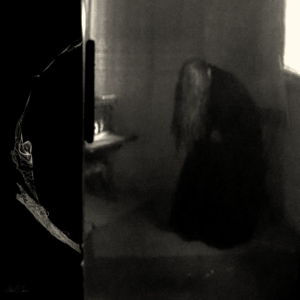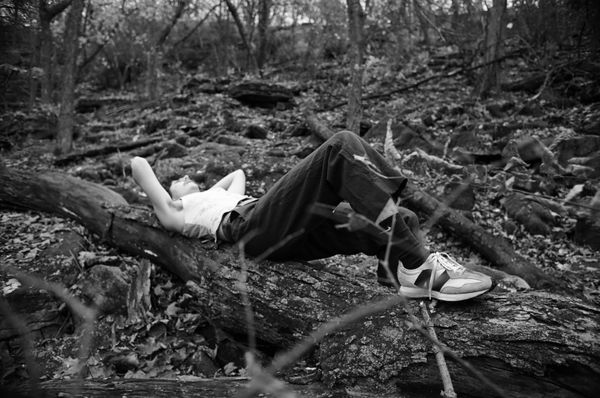Battle Scars: Building and Breaking Towards New Beginnings
by Blair E. Vandehey
The success of their debut album, Yours Truly, made the name “Paradise Fears” known in the early 2010’s alternative scene. Their musical versatility defined them as undefined. The possibilities of ‘what comes next’ were limitless. As they garnered a following with covers reimagined in the “Paradise Fears” style and performed as opening acts for other bands, the alternative rock group graced their fanbase with the 2013 release of Battle Scars, their most well-known album. Across the eight tracks, Battle Scars tells a storyof the journey towards self-actualization – the successes, the setbacks, and the strength it takes to get back up and begin again – while navigating the internal and external forces that influence its direction.
Both musically and lyrically, Battle Scars presents listeners with a compelling narrative: the cycle of building and breaking as we try to realize ourselves. Record scratches open the first two songs like the needle is pushing against the complacent vinyl in hopes to break free of its monotony, reminiscent of the “broken record” metaphor. This push- and-pull continues, the tracks’ thematic elements wavering between what is and what could be, such as in “Intro (Prelude)’s” juxtaposed lines, “This is shedding our skin / And breaking the chains that are binding us” and “This is the way that it’s been / And it always will be.” Finally, at the very end of the opening pair of tracks, lead singer Sam Miller declares his departure from his “perfect life” to “keep marching on” towards the great unknown.

Musically, Battle Scars immediately spirits listeners away towards the album’s intended destination. For example, the solemn opening of the titular anthem “Battle Scars” ramps up to the refrain with courageous abandon, drummer Lucas Zimmerman creating auditory imagery of a racing tempo with heavy downbeats on beats 1/4/7 without actually affecting the song’s BPM. The crescendo from Miller’s lone vocals to the entire band asking the titular question of “What Are You Waiting For?” in multiple- part harmony draws out the first half of the album’s steadfast nature as it soars beyond its former complacency.
Battle Scars’ halfway mark, “Lullaby,” is the album’s volta; for first time listeners are introduced to another ‘character’ and the central story is thematically (but purposefully) set aside. Until this point, the tracks’ narrative arc had occurred within the speaker, but Jordan Merrigan’s twinkling melody on the acoustic guitar and Miller’s yearning promise to stay up all night just to see the same sky that the lover is also looking at somewhere far away ushers in the transitory phase of the album to something more than internal revolution. From this point beyond, external influence becomes an integral part of guiding the journey.
Although “Lullaby” is a starry-eyed oath brimming with adoration, the ballad’s mood shift and introduction of ‘the external’ reveals this new vulnerability as a double-edged sword; letting down your guard and allowing someone in inevitably heralds change, forbetter or for worse. This nuance highlights the duality of hopefulness that defined the first half of the album. Beginning in the regretful “Fought For Me” that follows “Lullaby,” the previous ‘courageous abandon’ could be simultaneously viewed as reckless, the bravery Battle Scars championed so surely now appearing overly headstrong. However, in no way does Paradise Fears discredit Battle Scars’ genuine desire for a new beginning. Foolish naivety and authentic hope are often not mutually exclusive, after all, and the band recognizes this nuance by walking the line between the two without leaning either way too heavily.
“Fought For Me” is the first setback on the journey. The song reintroduces the doubtful push-and-pull listeners haven’t heard since “Battle Scars,” such as in the lyrics, “I try to tell myself that I just don’t care / But it’s her voice ringing in my head this time” and the AABA rhyme scheme, where Miller tries to break out of the previous ‘A’ couplet into a new ‘B’ rhyme only to backslide into the former ‘A.’
The final track, “Battle Scars (Reprise)” is the amalgamation of everything learned so far on the journey. It opens with humble keywork and the vocal melody of “Battle Scars” recognizing the story of both the “a soldier /weight of the world upon his shoulders” and “a dreamer...who’s got a little room to grow” as well as that “Better days are near / Hope is so much stronger than fear.” Upon that line, the instrumental blooms and the other vocalists support Miller’s callback to “Battle Scars’” first bridge. The album endswith Paradise Fears reminding listeners to “keep marching on,” the cyclical story both having started and ended with hope.
Battle Scars would go on to reach #2 on the iTunes Alternative chart upon its release. The album also inspired two spin-off albums in its wake, an extended edition with five new tracks and an acoustic rework.
Blair E. Vandehey is an Appleton-based writer, daydreamer, and lover of all things pop culture. She is currently working towards a degree in Creative Writing at Lawrence University.
Battle Scars
Paradise Fears
Self Released 2013




